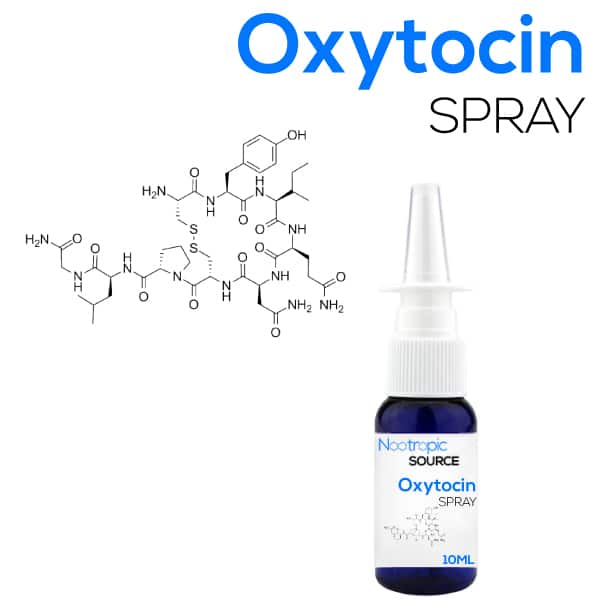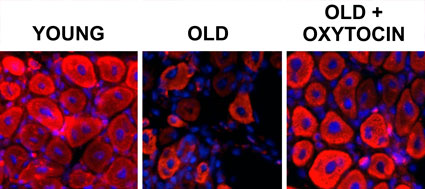
Oxytocin Spray
When oxytocin was administered as a nasal spray it led to a decrease in repetitive behaviors and other improvements in men with autism.
$24.00
Additional fees may apply
Description
Researchers at KU Leuven have now discovered that administering oxytocin to adult men with autism makes them more open to close emotional bonds with others. The hormone has positive long-term effects as well.
A team led by Professor Kaat Alaerts (KU Leuven) recruited 40 adult men with autism spectrum disorder to take part in their study.
“In a first stage, we examined the amount of oxytocin produced by the participants themselves. The subjects also filled out several questionnaires,” Professor Alaerts explains. “An analysis of the data revealed that the amount of oxytocin found in the subjects’ saliva was inversely related to their self-reported attachment issues.”
In a second stage of the research, the team examined the long-term effects of administering oxytocin through a nasal spray. This experiment produced remarkable results: the participants who had been given oxytocin for four weeks experienced positive effects until up to a year later.
The amount of oxytocin found in the subjects’ saliva was inversely related to their self-reported attachment issues.

Contact

Scientific research
The healthy muscle tissue on the left is from a young mouse. The ability of muscle to repair itself decreases with age, as evidenced by the middle image of old muscle tissue, which shows a lower density of muscle fibers, increased scar tissue and inflammation. The addition of oxytocin to the blood of old mice rapidly rejuvenates the old muscle, as shown on the right. (Photos by Wendy Cousin and Christian Elabd, UC Berkeley)
Follow Us
Subscribe
1235 Divi St. San Francisco, CA 92351
